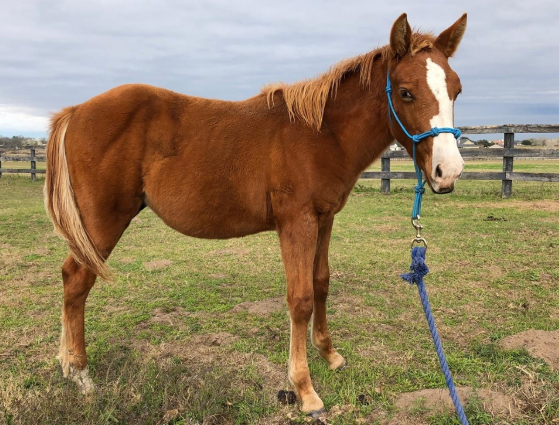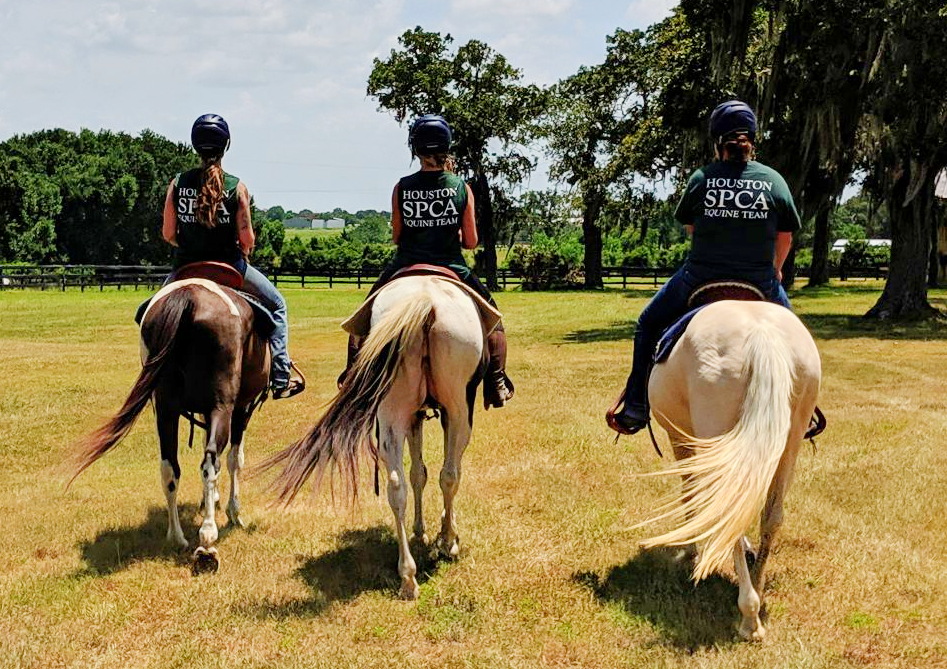
Listen
Houstonians are used to hearing about the problem of neglected and mistreated pets, like dogs and cats. But there are plenty of malnourished and neglected horses in the city too.
Kaycie McCarthy her all-female team at the Houston SPCA work to rescue horses in need from all over Houston and potentially finding them new homes.
“Most of the horses we get in are incredibly underweight and under managed,” she said. “I honestly think that the reason is just a lack of education in the community.”
A notorious example of this was the Conroe 200 case, when 207 starving horses were found on a farm in over 100-degree weather without access to shelter or water.
After the state seized the horses, they were awarded to the SPCA. Here’s the story of one survivor:
A healthy horse typically weighs 1,000 to 2,000 pounds, but the SPCA regularly gets cases of horses weighing much less than that. With the cost of keeping a horse fed and sheltered at around $500 a month, owners can quickly find themselves overwhelmed with trying to care for even a previously healthy horse.

McCarthy will go on-site to see the horses’ living conditions and make a plan for them when they get to the rescue. And when the horses are brought into the SPCA facility they are seen immediately by an equine veterinarian who performs an overall health exam for an assessment of their age, condition, and behavior.
Often, horses are so far neglected that they are not used to human contact of any kind. If a horse does not allow human contact, then brushing, hoof care, and even basic feeding can be dangerous. Extra care and training are done by the staff to acclimate the horses to being touched and to make them adoptable. This process can last from six months to two years.
“They all have their own personalities, levels of intelligence, and the desire to get along with people,” McCarthy said.
The SPCA will then match adopters to the horses’ skill level and the horses that are more forgiving to the people who are still learning how to care for one.
“We get a lot of adoptions who just want to help,” she said. “They want to give this horse a good life. They don’t necessarily have the most experience, but they have a heart for rescue and what we do. So we try to be a resource for these people.”

 74 °F
74 °F